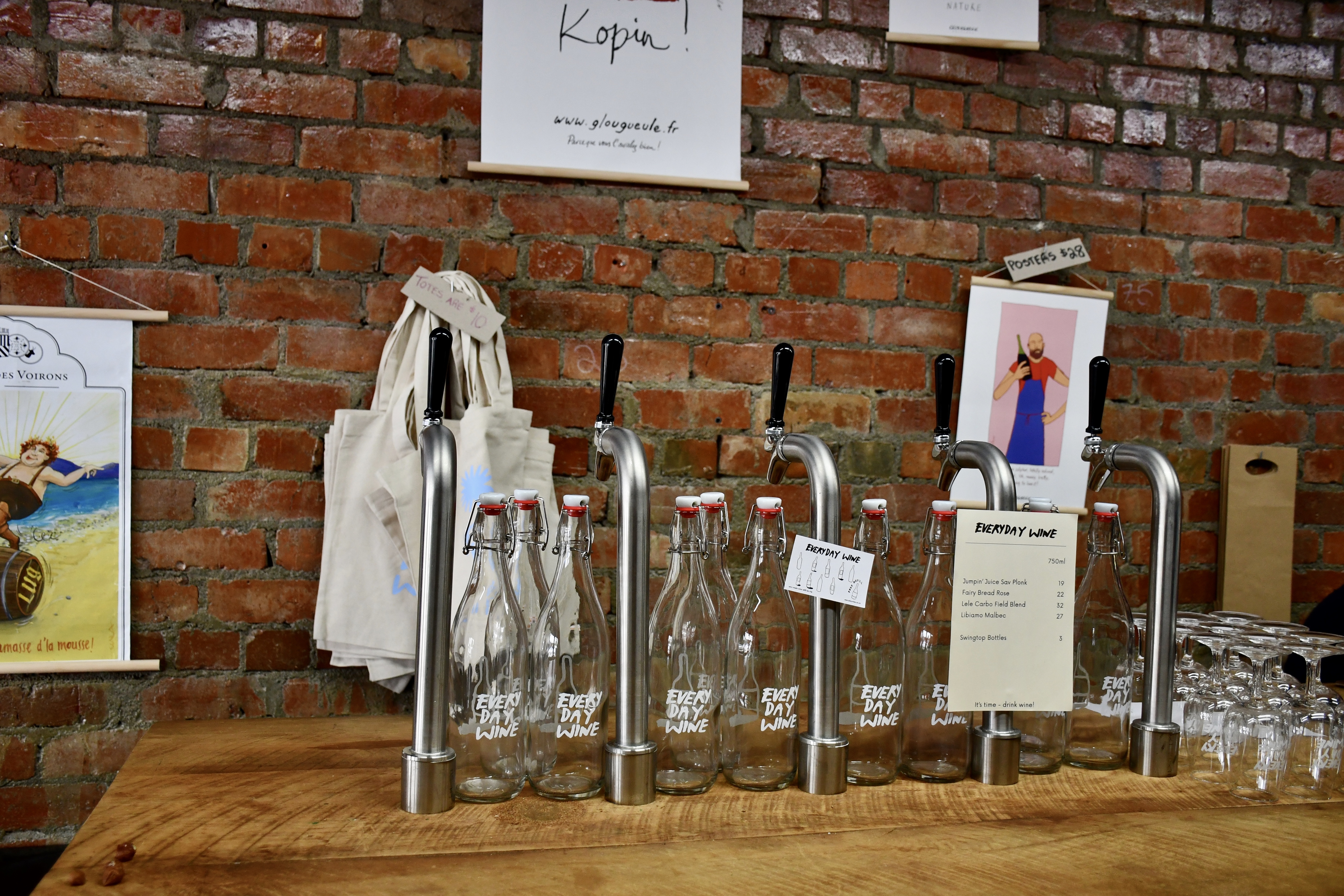Can't see the place you're looking for?
North Island:
South Island:
Thames:
Tairua:

What is Tap Wine and is it any good?
Posted by —
eatnewzealand
Published —
30.10.2020
The concept of tap wine isn’t novel. All throughout Europe, North America and Australia, Tap Wine has readily been picked up by producers, distributers, retailers, restaurants and consumers alike. But, it’s still early days here in New Zealand. This idea makes sense once you dive a little deeper and shake off the perception that ‘fine wine’must be bottled if it’s to be any good.
So, what is it all about? Finished wine is kegged into 20L lightweight and airtight stainless-steel cylinders which eliminates the use of 26 glass bottles, corks/screwcaps, labels and cardboard cartons. And removing this amount of waste out of circulation is just the beginning… These reusable steel kegs can be used over and over, so the amount of waste diverted from the landfill adds up pretty quickly. Good for the environment? Check.
From a producer point of view, it also makes sense. Bottling wine can be a laborious and expensive process. Kegging wine reduces not only the cost of production but also time, which for most winemakers is even more important. Especially for small vignerons who tend to spend most of their time in the vineyards instead of the winery. It also prevents the inevitable risk of costly bottle breakages. Rob Burley from Unkel Wines over in Nelson agrees, “it’s a great way to reduce our carbon footprint and also makes my wine available to consumers at a more approachable price point”.
As the wine is held in kegs which are airtight and temperature controlled, it is safe from oxidation and UV rays each and every time the wine is poured. From first to last pour, the quality of the wine remains the same. That’s a huge win for producers. Typically, when wine has been bottled and stocked at a given restaurant, the winemaker gives up that quality control and hopes the bottles are stored correctly and staff don’t offer wine from a bottle which has been opened for too long. Good for producers? Check.
Now this is when it gets really good. Anyone who has worked in hospitality will be able to attest to the amount of waste which occurs in any given bar or restaurant. Some consumers want to taste a wine before purchasing and some bottles get opened for BTG (by the glass) pour but never sell through, letting the wine sit there becoming oxidised to the point that the wine gets poured down the drain. If that is not a waste of wine and money, I don’t know what is. Dan Gillett, who ran Scotch Wine Bar in Blenheim for six years and founder of Wine Diamonds NZ remembers having 30 wines by the glass and was constantly juggling waste. “To think people grow grapes for an entire year, go through all the risks and challenges of turning that into something amazing, only to lose it down the sink at the end of every week is upsetting at best”. Dan has since opened Clay, with Brendan Manning. The wine bar in Auckland includes tap wine as part of its offering to address the issue of waste. Brendan believes that “installing keg wine has been a real step forward for Clay. It ensures that whether pouring a glass or carafe, we’re always pouring a consistent quality product. The reusable nature of the kegs also aligns with our ethics as there’s no waste, and the environmental impact of shipping the wine is far reduced”.
Retail stores, bars and restaurants can easily set up a tap wine system, much like they do for beer, and pour wine as they please: half glasses, glasses, half carafes, carafes. There is no waste. Offering a taste doesn’t mean sacrificing an entire bottle, and each glass retains the same freshness and quality due to the airtight environment the wine is stored in. Good for hospitality? Check.
So then, what’s in it for consumers? Essentially consumers still have access to the same wines they have always enjoyed, without the risk of a stale glass or a corked bottle. Typically, the wines are cheaper due to the lower costs of production, and of course there is the feel-good factor knowing this kind of consumption is diverting landfill. Everyday Wine in Wellington has four taps on rotation, so there is always plenty of choice. Swing top bottles are a one off $3 purchase, that customers can fill, clean and refill at their own convenience. Cosmo Hawke who manages the store has been converted. “Wine on tap provides the shortest path from grape to glass. The result is fresher wine and zero packaging with greatly reduces the environmental impact of your everyday wine consumption”. Good for everyone? Check.
It might be early days here in New Zealand, but Tap Wine isn’t the next short lived fad. There are too many economic, social and environmental reasons why this concept will continue to grow here in New Zealand. And I for one, am all for it!
Words by our Kaitaki Collective Member - Ashleigh Barrowman. Writer. Natural Wine & Regenerative Agriculture Enthusiast.
Image: Easy pour taps and swing top bottles from Everyday Wine (Photo by Ashleigh Barrowman).

